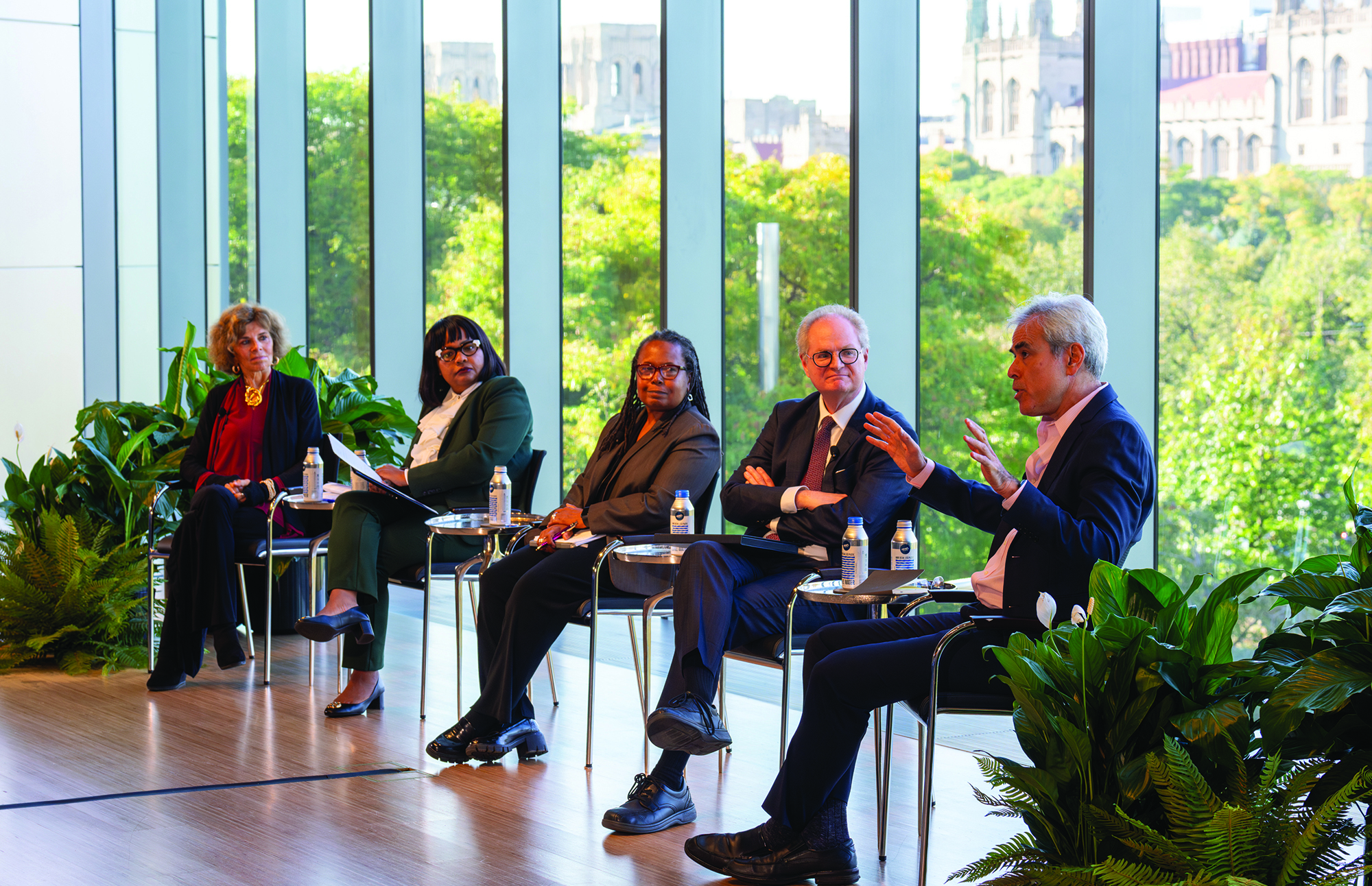
A new forum promotes free and open discourse at UChicago and beyond.
In October the University of Chicago launched the Forum for Free Inquiry and Expression with a two-day series of conversations. Building on the University’s historic commitment to free expression, the Forum will provide a focal point for research into and discussion of these values in academia and in the broader culture. President Paul Alivisatos, AB’81, opened the launch event by underscoring the Chicago Forum’s ambition to serve as a site for the “never-ending struggle to be a place where free expression genuinely serves the seeking of truths, through listening as well as sharing our own ideas.”
Faculty director Tom Ginsburg and executive director Tony Banout, PhD’12, joined experts and leading thinkers at the event for discussions of intersecting topics, including technology and political polarization.
“For students, especially, … expressing oneself does not come easily or automatically,” said Ginsburg, the Leo Spitz Distinguished Service Professor of International Law. “It is not simply the absence of constraint which allows us to engage in deep expression. Instead, the University really is required, in my view, to actively construct opportunities for interrogation of ideas and the exchange of views across difference.”
The speakers—among them artists, scholars, journalists, politicians, and leaders of such organizations as the American Civil Liberties Union and PEN America—explored creating a university climate in which students, researchers, and instructors feel invited to share their views. Many of the speakers reflected on the complex intersections between free expression and issues of diversity and inclusion.
Tracie Hall, executive director of the American Library Association, noted the role of free expression, libraries, and access to information in building social activist movements and defending minoritized groups. Hall highlighted a quote from an 1867 issue of Harper’s Monthly that emphasized the role of literacy and information access in the fight against slavery: “The alphabet is an abolitionist.” Intellectual freedom and diversity, equity, and inclusion, she said, serve as “mutually reinforcing principles,” and “if they are not, we are doing both wrong.”
UChicago professor Cathy Cohen noted the challenges she has faced as a Black woman throughout her career. “I have been in multiple situations in educational scenarios or classrooms where, in fact, I have been demeaned, and Black people have been demeaned, where there has been harmful speech,” said Cohen, the David and Mary Winton Green Distinguished Service Professor of Political Science. “I think part of what I would ask us to do is to say we want to pursue free speech, but to be serious about the complicated nature and the issues that surround the anchoring of free speech.”
Nadine Strossen, a past president of the American Civil Liberties Union, said freedom of speech should be a “shared reality” for everyone. “I completely understand that freedom of speech is a double-edged sword,” she said. “I defend freedom, for example, for hate speech—not despite the fact that it clearly can have an intimidating and chilling impact on other people’s speech, but because I think the alternative of centralized suppression is worse, especially for those groups that have traditionally been marginalized and disempowered.”
The discussions were just the start of the Chicago Forum’s work to promote the understanding, practice, and advancement of free expression at UChicago and beyond. Inaugural programs will continue through the academic year, including the Zell Series of lectures and events, fellowships and student grants, and arts programming with Doc Films and the Logan Center.
“I hope that you will view this event as a first experiment, as a beginning, not an end,” Alivisatos said in closing remarks, “and that you will see the Forum as the place for a constant struggle to get this right.”
